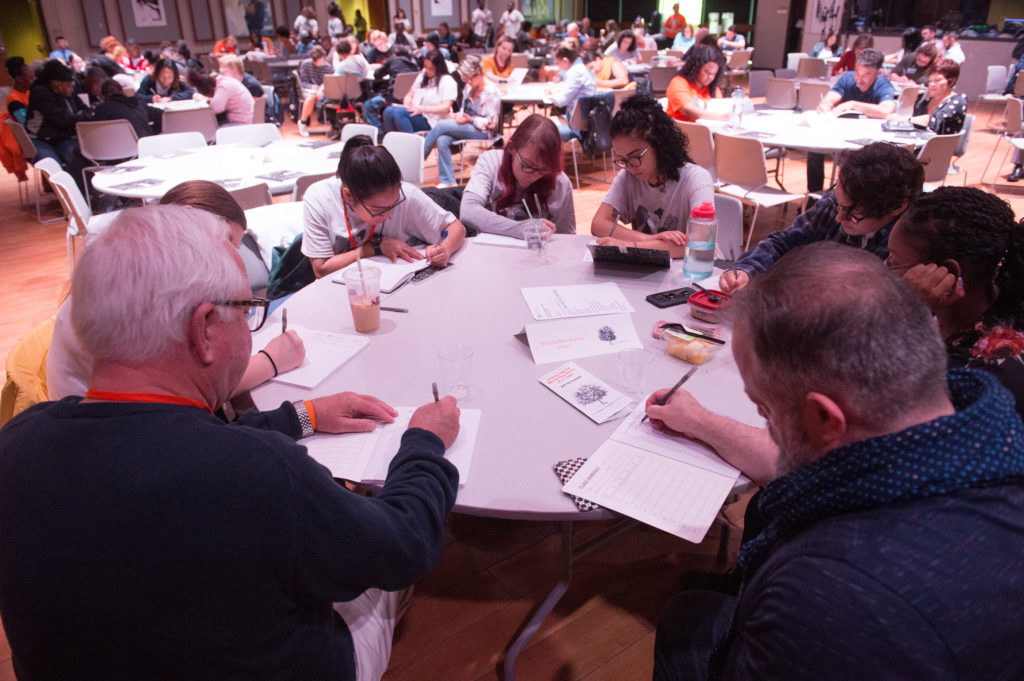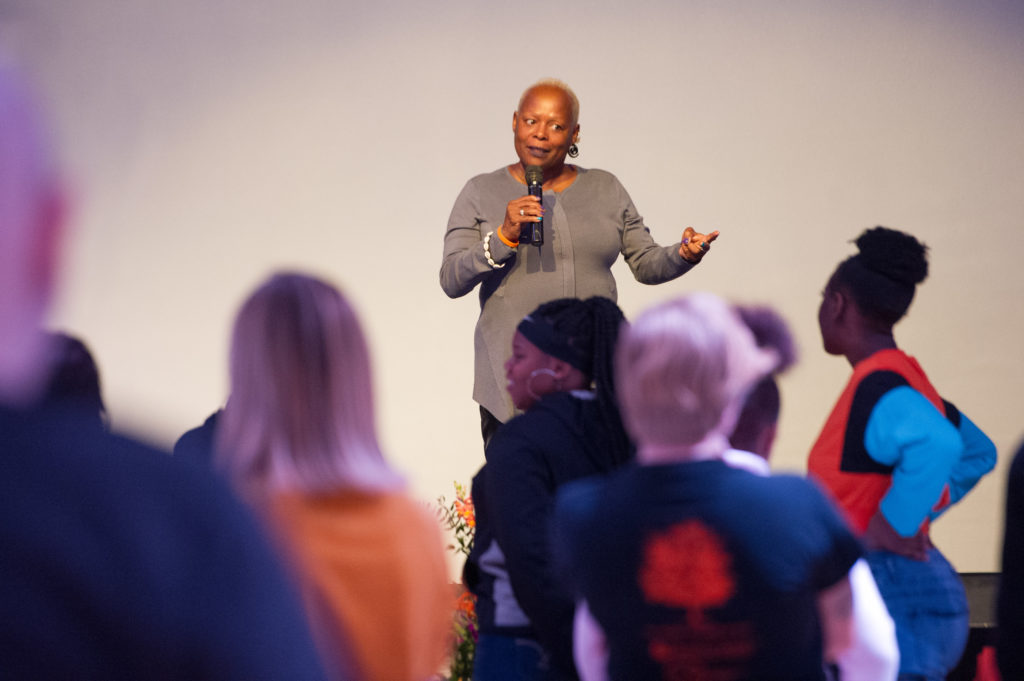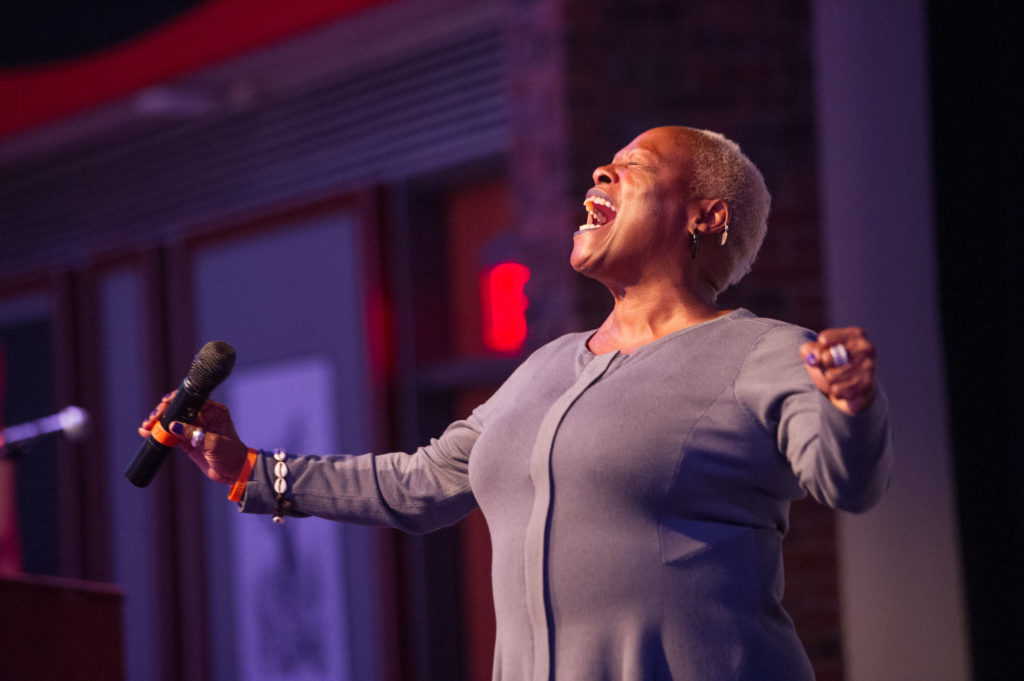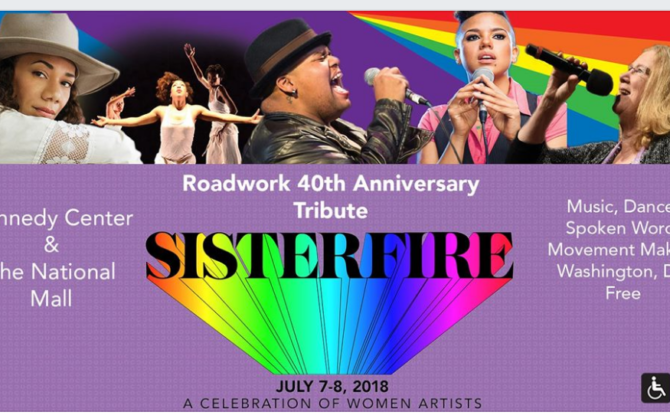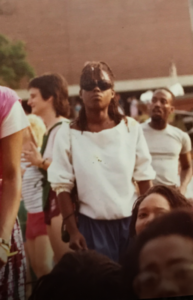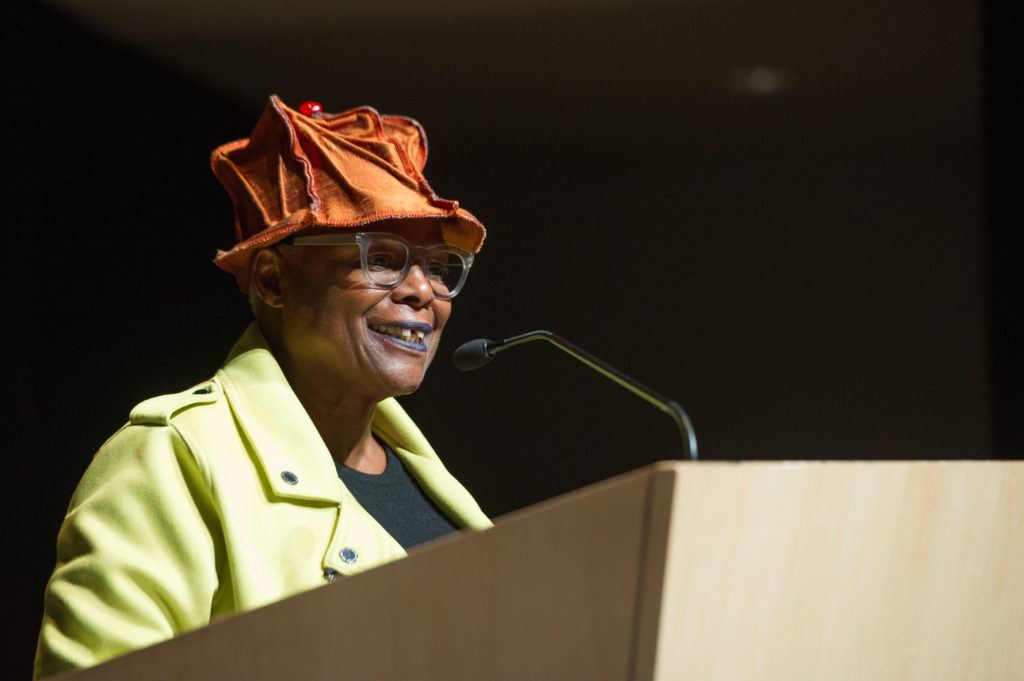
AFP 2019: Engage for Change, Buffalo State College’s 11th annual Anne Frank Project social justice festival, was held this week, featuring author and activist Alexis De Veaux, distinguished speaker in the Buffalo State College Paul G. Bulger Lecture Series, who kicked off the event Tuesday evening.
Dr De Veaux’s keynote “What IF: Imagination as Engaged Action” was received with a standing ovation from a full auditorium of students, faculty and guests.
“What if “race” and racism as human life has constructed them, were done away with? Imagined out of existence? What if we could agree tonight, right here, right now, without need to argue the point, that racism and white supremacy are, as Toni Morrison suggested, indicative of “a profound neurosis.” What if we had a way to imagine our intraspecies health. What if we dispensed with the notion of ourselves as “allies” to social movements, and became accomplices. Became risking something rather than sidelines. “
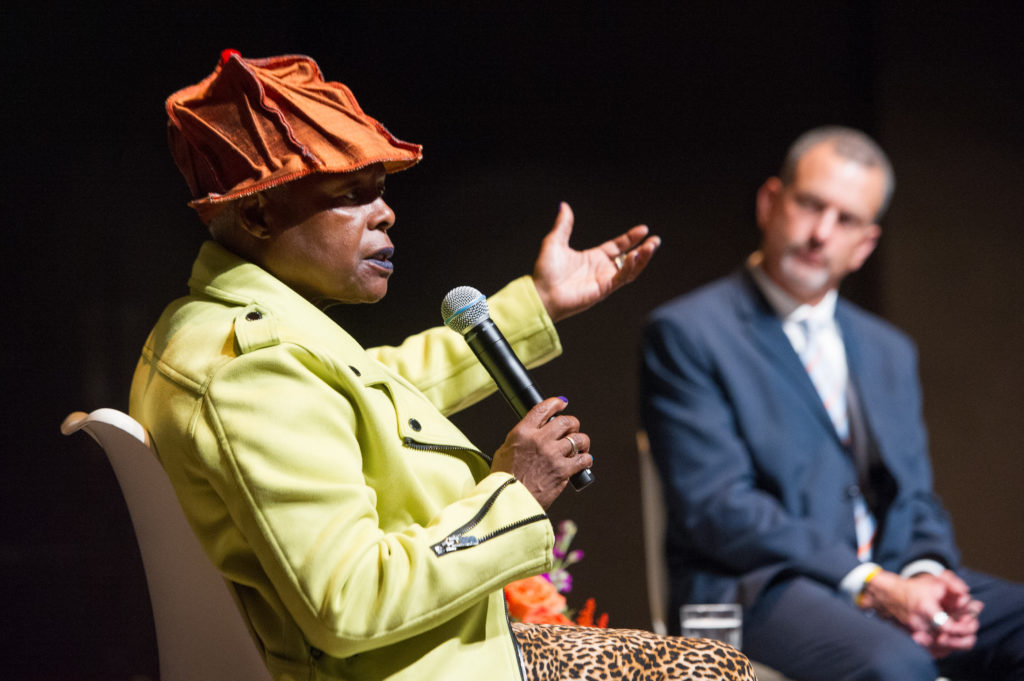
Dr Eric Darnell Pritchard of the University at Buffalo, New York State, attended the event and commented:
Dr Alexis De Veaux’s lecture “What If: Imagination as Engaged Action” was incredible! She was introduced by Katherine S. Conway Turner, the President of Buffalo State, SUNY, who is herself a dynamic scholar, teacher, and administrator. Here are some of the gems: “Imagination is the bloodstream to the vernaculars of freedom and love.” “Life is not about what I cannot do, but about what I want to do.” — “The opposite of poverty is justice.” —“Freedom and love are doing words. They are “We” forming and “We” sustaining.” — “Every movement for change started in someone’s imagination” — Citing @alexispauline’s #MArchive “Freedom is not a secret, it’s a practice.” — She also shared some of the wisdom from the Revival we participated in last weekend in Durham in celebration of our dear and beloved @sangodarejroxwallace. — I am so grateful for Alexis De Veaux and all my queer Black Feminist elders. For her queer Black Feminist brilliance. For her activism and art. For her queer Black Feminist elder-ing. For her legacy here in Buffalo and everywhere she calls home as a “multi-local” person. For the wisdom she shares with all. What a gift and an example of fortitude in the work of the possible!
On Wednesday 2nd October, Dr De Veaux facilitated a workshop “Activate Peace” which was again a full house with mainly students, and some faculty and administrative staff attending.
